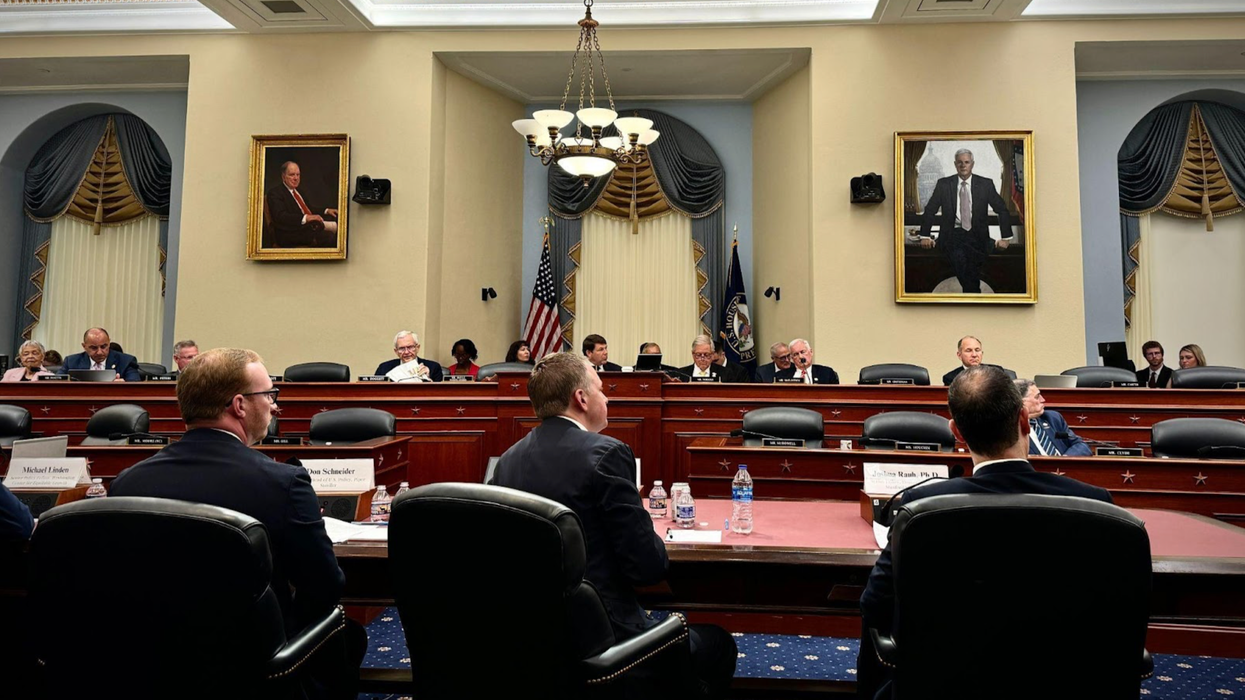WASHINGTON –– Republicans and Democrats clashed on May 7 at a House Budget Committee hearing over how to address the nation’s mounting federal debt—whether to raise revenue through tax increases or cut spending on federal programs such as Medicaid.
Both parties agreed that the United States was on an unsustainable fiscal path and that urgent action is needed to prevent a debt crisis.
U.S. national debt will soon exceed $30 trillion, with annual deficits approaching $2 trillion; interest payments on the debt now surpass the entire defense budget, according to projections by the Congressional Budget Office.
“These figures represent a growing economic burden that threatens long-term prosperity,” said Joshua Rauh, senior fellow at the Hoover Institution at Stanford University, in his testimony.
Republican representatives argued that the debt burden was driven by the “unchecked” growth of mandatory spending programs, particularly Medicaid. They blamed the expansion of Medicaid coverage under the Affordable Care Act for adding pressure to the federal budget.
The Act allows states to extend Medicaid coverage to adults with incomes up to 138% of the poverty level (about $20,780 annually for an individual or $35,630 for a family of three). Currently, 40 states and Washington, D.C. have adopted the expansion.
“Are we not, through Medicaid, currently subsidizing the able-bodied massively more than the vulnerable, for whom Medicaid was actually designed to serve?” Rep. Chip Roy (R-Texas) said.
“If you’re illegal, you should not get a check from the federal government. If you don’t work and you are healthy, you should not get a check from the federal government,” said Rep. Ralph Norman (R-S.C.).
Michael Linden, senior policy fellow at the Washington Center for Equitable Growth, opposed this idea, arguing that 80 million Americans rely on Medicaid, which covers most long-term care and nearly half of all births in the United States.
While Rep. Norman said, “It is not a cut. It’s just rearranging an inequity,” a Congressional Budget Office analysis released May 7 showed that several Republican proposals to slash Medicaid would lead to millions of people losing health insurance coverage.
“There is a reason why 80% of Americans, including the majority of Republicans, oppose cuts to Medicaid,” said Linden.
While Linden acknowledged that the program could be more efficient, he said he has not seen any proposals from the Republicans that would reinvest the money saved from cuts back into the program to benefit people.
“Instead, those cuts are going to pay for tax cuts for billionaires,” said Linden.
Democrat representatives attributed the mounting debt crisis not to excess spending but instead to tax cuts, saying they benefited only the wealthy.
“The sweeping, indiscriminate tariffs that have raised prices on Americans, the slashing of critical programs from health care to education—why? All so that we can set up a $7 trillion tax break for the wealthiest in America,” said Rep. Judy Chu (D-Calif.)
A recent U.S. Treasury Department analysis found that Trump’s 2017 Tax Cuts and Jobs Act gave the top 1% of households an average tax cut of $60,300, compared with $660 for the middle 20% of households by wealth.
Rauh from Hoover Institution argued that raising tax rates discouraged work, savings, and investments, leading to lower growth and fewer new businesses and jobs, which would ultimately reduce revenues.
“Our research shows that when governments impose high tax burdens, you get lower than expected revenue growth,” said Rauh, supporting the tax cuts.
Linden disagreed with that theory. Quoting research from the Yale Department of Economics, he said at the hearing that corporations receiving the tax cut did not raise wages for their workers—but they did raise wages for their executives.
“Growth and prosperity come from everyday Americans going about their lives—creating jobs, being customers, being productive members of society—and they need basic things like health care and food and housing,” said Linden. “Not through a hope that the tax cuts for a giant multinational corporation will eventually trickle down to them.”
Huiyan Li is a reporter for Medill News Service covering business & technology. She is a journalism graduate student at Northwestern University specializing in politics, policy, and foreign affairs.






















 Mayor Ravi Bhalla. Photo courtesy of the City of Hoboken
Mayor Ravi Bhalla. Photo courtesy of the City of Hoboken Washington Street rain garden. Photo courtesy of the City of Hoboken
Washington Street rain garden. Photo courtesy of the City of Hoboken